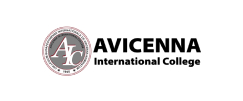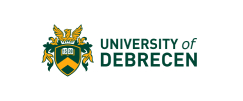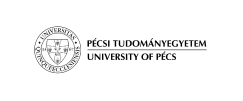Budapest
CapitalHungarian
Language+36
Dialing CodeFt Hungarian Forint (HUF)
CurrencyApproximately 9.6 million
PopulationFt25,00,000 per year*
Tuition FeesFt20,000 per month*
Living ExpensesFall | Spring
IntakesWhy Study in Hungary?
Hungary boasts a rich cultural heritage, a vibrant academic tradition, and a central location in Europe. Its universities offer a wide range of programmes taught in English, attracting students from around the world. With a combination of high-quality education, affordable tuition fees, and a rich cultural experience, Hungary provides an excellent opportunity for international students to pursue their academic goals in a dynamic and welcoming environment.
Benefits
Flexible Education
Freedom to pick courses as the academic courses are tailored for students’
Work Opportunities
Experience practical learning with part-time working options while working
Modern Facilities
Access to state-of-the-art academic resources like libraries and research labs
Avail Scholarships
Fund your higher education with various scholarships offered by universities
Relaxing Environment
The beautiful Hungarian landscape help to relax between tough academic sessions
Personal Development
Enhance skills like independence, adaptability, and better communication
Explore MetaApply Calculators
Eligibility Criteria
| Academic Qualifications | Equivalent to Hungarian secondary education for undergraduate programmes and bachelor’s degree for postgraduate programmes. |
| Language Proficiency | Proof of English proficiency (e.g., IELTS, TOEFL) as required by the chosen programme. |
| Entrance Exams | Some programmes may require additional tests or entrance examinations. |
Required Documents
| Completed Application Form | Specific to each university or institution. |
| Academic Transcripts | Official copies from all previous institutions. |
| Proof of Language Proficiency | Test scores or certificates demonstrating proficiency in English or Hungarian. |
| Statement of Purpose | Detailing your motivation and academic goals. |
| Letters of Recommendation | From academic or professional referees. |
| Passport Copy | Valid for the duration of your stay. |
| Financial Documents | Evidence of sufficient funds to cover tuition and living expenses. |
| Passport-Sized Photographs | Recent photographs as per specifications. |
VISA Requirements
| Visa Application Form | Completed and submitted to the Hungarian embassy or consulate in your home country. |
| Passport | Valid for the duration of your stay. |
| Acceptance Letter | From a recognised Hungarian educational institution. |
| Proof of Financial Support | Bank statements, scholarship letters, or financial sponsorship. |
| Health Insurance | Proof of health coverage for the duration of your stay. |
| Student Visa or Residence Permit | Issued by the Hungarian authorities upon approval of the visa application. |
Cost of Study in Hungary
| Tuition Fees | Varies by programme and institution, generally HUF 200,000 to HUF 2,500,000 per year for undergraduate programmes and HUF 300,000 to HUF 3,500,000 per year for postgraduate programmes. |
| Living Expenses | Approximately HUF 100,000 to HUF 200,000 per month, depending on location and lifestyle. |
| Health Insurance | Around HUF 20,000 to HUF 30,000 per year. |
| Books and Supplies | Around HUF 20,000 to HUF 50,000 per year. |
Please note: All information is sourced from web and the data may vary—kindly refer to official or government websites for the most accurate details.
Countries in Europe
Process of MetaApply
Frequently Asked Questions
Yes, various scholarships and grants are available from Hungarian universities, government organisations, and international foundations based on merit and need.
Yes, international students are allowed to work part-time up to 20 hours per week during the academic year and full-time during official vacation periods.
Intakes vary by institution and program, but the primary intakes are usually in September/October and February/March.
For programs taught in English, Hungarian language proficiency is generally not required, but it may be beneficial for daily life and integration into Hungarian society.
After receiving an acceptance letter from a Hungarian institution, you can apply for a student visa or residence permit at the Hungarian embassy or consulate in your home country.

Download Destination Guide
Get destination-wise insights, requirements, and university options.

























